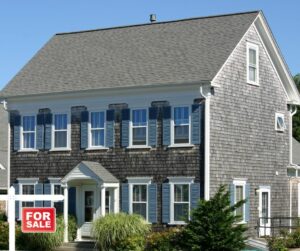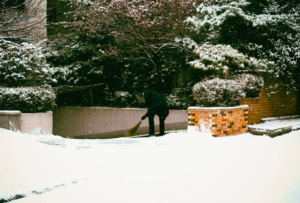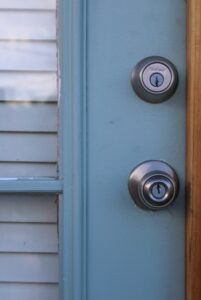Home Security is top of mind if you’re a homeowner. When they sell, most sellers still live in the home; however, that is not always the case. In some situations, sellers must list their homes and move out, which might open them to security risks that are less likely if they live in the house. Hopefully, you’ve talked with your agent about home staging’s impact on price and sale speed. Staging a home that otherwise isn’t occupied can keep your home safe. It creates the illusion of occupancy, whether the owner resides there or not, but additional safety measures are advisable.
Home Security Preventive Maintenance
1) Just because you have moved out doesn’t mean you shouldn’t maintain your property. In fall or winter, hire for leaf removal and ensure frequent snow clearance on driveways and walkways in winter. It also gives the impression someone might still be living there. It also helps you sell your home quickly.
2) Hopefully, you had the opportunity to know your neighbors before you moved. Please invite them for a pre-market home tour, introducing them to potential regular visitors, especially your agent. This helps identify authorized visitors and assess potential threats when you’re away. Also, neighbors are sometimes the best endorsement to a potential buyer.
3) Assess your home vulnerability. Step away from your home and ponder how to regain entry if locked out. Whatever you first think of, go to that potential entry point. Check if it is unlocked or broken. Survey the exterior, identify possible entry points, and test your access success. You could also bring a friend. They might think of entry points you didn’t know of.
4) Respect the power of light. A well-lit home is a home criminals often will want to avoid. Put outside lights on timers. An indoor lamp that goes on, or if your home is bright, turn on lights from afar. Give the impression someone lives there.
5) The next tip may seem obvious, but ensure all locks are secure.
6) Reinforce locks. A good door lock is nothing without a solid frame. Invest in a solid door jam and strike plate first, then invest in good locks. Know the difference between a single-cylinder and a double-cylinder deadbolt. We recommend double-cylinder deadbolts because they require a key to both enter and exit. It would help to leave the key in when you are home for safety and emergency escape purposes. But double-cylinder locks are against regulations in some places, so check with your local police department’s crime prevention office.
Power of Neighbors and Friends
7? Have a neighbor or friend make surprise visits on random weekdays, halt mail delivery, and have them inspect the house. Again, you do not want to give any clues to criminals. No one lives here.
 8) Buyers come to open houses, but so do criminals. Sellers either fully stage their homes or leave certain rooms and personal items during the contract period. Discuss this with your agent before listing.
8) Buyers come to open houses, but so do criminals. Sellers either fully stage their homes or leave certain rooms and personal items during the contract period. Discuss this with your agent before listing.
9) Hopefully, you had the opportunity to know your neighbors before you moved. Please invite them for a pre-market home tour, introducing them to potential regular visitors, especially your agent. This helps identify authorized visitors and assess potential threats when you’re away. Also, neighbors are sometimes the best endorsement to a potential buyer.
Security with technology
10) Alarm Systems. To alarm your home or turn the alarm off. Alarm systems, although inconvenient for agents, offer added security when you’re not residing there.
11) Cameras on the property. Cameras on properties used to be exclusive to the wealthy, but now, with Ring doorbells, more homeowners have them. Installing cameras at entry points lets you monitor your home when you’re not living there or have moved out. Make sure the camera turns on when motion is detected. The need to post notices about recorded individuals on your property depends on your state’s regulations. When installing home cameras, inform your agent and be aware that recording audio may require disclosure in certain states to prospective clients. Check with your state on the laws about cameras.
12) Mark valuables and record valuables before you leave the home. Use invisible-ink pens or engravers to mark items’ identifying information (driver’s license or state ID numbers). Log serial numbers and take photos of your belongings.
Agent Safety
13)If you’re an agent showing an unoccupied property, take safety precautions. Consider teaming up with coworkers during open houses or evening showings. If you can’t team up, share your schedule for check-ins or schedule your next appointment at the same property for a quicker response to potential issues.
If you’re selling or have relocated and need to sell or rent your home, reach out for a customized plan to market the house while ensuring its safety and security. We can all use most of these tips in this blog, even when not looking to sell. We all go on vacation and have a family emergency for an extended period or travel for work. Safety matters






Leave a Reply